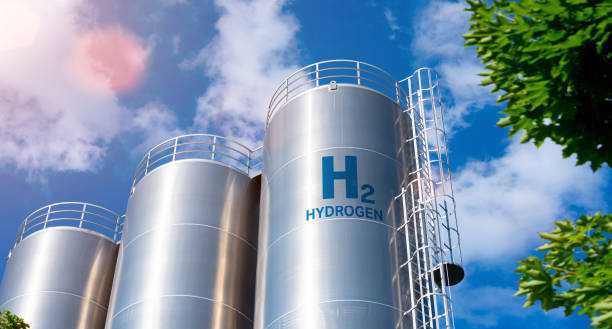Industrial units play a crucial role in the modern economy by providing the infrastructure needed for manufacturing, production, and other industrial activities. These units are specialized facilities designed to accommodate various industrial processes, and their efficient management is vital for the smooth functioning of industries.
Types of Industrial Units
Manufacturing Units: These are facilities where raw materials are transformed into finished products. They are equipped with machinery and technology tailored to specific production processes. For examp Industrial Units automotive manufacturing units include assembly lines and robotics to build vehicles.
Processing Units: These units focus on processing raw materials to enhance their value or convert them into different forms. Examples include food processing plants where raw ingredients are turned into packaged foods and chemical processing units that create various chemical compounds.
Storage Units: Essential for supply chain management, these facilities store raw materials, intermediate goods, and finished products. Warehouses and distribution centers fall under this category, ensuring that products are kept in optimal conditions until they are needed.
Logistics Units: These units handle the transportation and distribution of goods. They are crucial for managing the flow of products between suppliers, manufacturers, and consumers. Logistics units include hubs, sorting centers, and transportation fleets.
Research and Development Units: Focused on innovation, these facilities work on developing new products or improving existing ones. They are equipped with specialized labs and testing equipment to support scientific and technical research.
Key Features of Industrial Units
Infrastructure: Industrial units require robust infrastructure, including large spaces for machinery, storage areas, and loading docks. They are often located in industrial zones or business parks designed to support heavy-duty operations.
Technology and Equipment: Advanced technology and machinery are central to the operations of industrial units. Automated systems, robotics, and high-efficiency equipment improve productivity and reduce operational costs.
Utilities and Services: Industrial units need a reliable supply of utilities such as electricity, water, and gas. Additionally, waste management systems and safety measures are essential to ensure smooth operations and compliance with regulations.
Compliance and Safety: Adherence to industry standards and safety regulations is crucial. Industrial units must meet environmental regulations, occupational health and safety standards, and other compliance requirements to operate legally and safely.
Benefits of Industrial Units
Economic Growth: Industrial units contribute significantly to economic development by creating jobs, fostering innovation, and driving industrial production. They stimulate local economies and enhance regional development.
Increased Efficiency: Specialized industrial units are designed to streamline production processes, reduce waste, and improve overall efficiency. This leads to cost savings and better utilization of resources.
Innovation and Technology Advancement: Industrial units, especially those focused on research and development, are at the forefront of technological innovation. They drive advancements in manufacturing techniques, materials, and product design.
Supply Chain Optimization: Efficient industrial units contribute to a well-organized supply chain, ensuring that products are produced, stored, and delivered in a timely manner. This enhances the reliability and responsiveness of the supply chain.
Scalability: Industrial units are designed to scale with business growth. As demand for products increases, these facilities can often be expanded or upgraded to accommodate higher production volumes.
Challenges Faced by Industrial Units
High Initial Investment: Setting up an industrial unit requires a substantial capital investment in infrastructure, machinery, and technology. This can be a significant barrier for new businesses or those looking to expand.
Maintenance Costs: Industrial units require ongoing maintenance to ensure that machinery and equipment remain in good working condition. Regular maintenance and repairs can be costly and require specialized expertise.
Regulatory Compliance: Navigating regulatory requirements can be complex. Industrial units must comply with a range of local, national, and international regulations related to safety, environmental impact, and labor practices.
Environmental Impact: Industrial activities can have a significant environmental impact, including pollution and resource depletion. Addressing these concerns through sustainable practices and technologies is essential for minimizing environmental harm.
Workforce Management: Managing a skilled workforce is crucial for the efficient operation of industrial units. This includes recruitment, training, and maintaining high levels of worker safety and satisfaction.
Future Trends in Industrial Units
Automation and AI: The integration of automation and artificial intelligence is transforming industrial operations. Smart factories and automated systems are increasing productivity and reducing human error.
Sustainability: There is a growing emphasis on sustainability in industrial operations. Companies are investing in green technologies, renewable energy sources, and waste reduction initiatives to minimize their environmental footprint.
Digitalization: The digital transformation of industrial units is enhancing data collection, analysis, and decision-making. Industry 4.0 technologies, such as IoT and big data analytics, are driving innovation and efficiency.
Customization and Flexibility: The demand for customized products is rising, leading to greater flexibility in industrial operations. Units are increasingly adopting agile manufacturing techniques to meet diverse consumer needs.
Globalization: As industries become more global, industrial units are adapting to international markets. This includes complying with global standards, managing international supply chains, and addressing diverse regulatory environments.
Conclusion
Industrial units are the backbone of modern industry, providing the infrastructure and capabilities needed for production, processing, storage, and logistics. Their role in driving economic growth, efficiency, and innovation cannot be overstated. Learn More about how these vital structures support and advance the industrial sector.. While they face challenges related to investment, maintenance, and regulatory compliance, the future of industrial units looks promising with advancements in automation, sustainability, and digitalization. As industries continue to evolve, industrial units will play a pivotal role in shaping the future of manufacturing and production.


